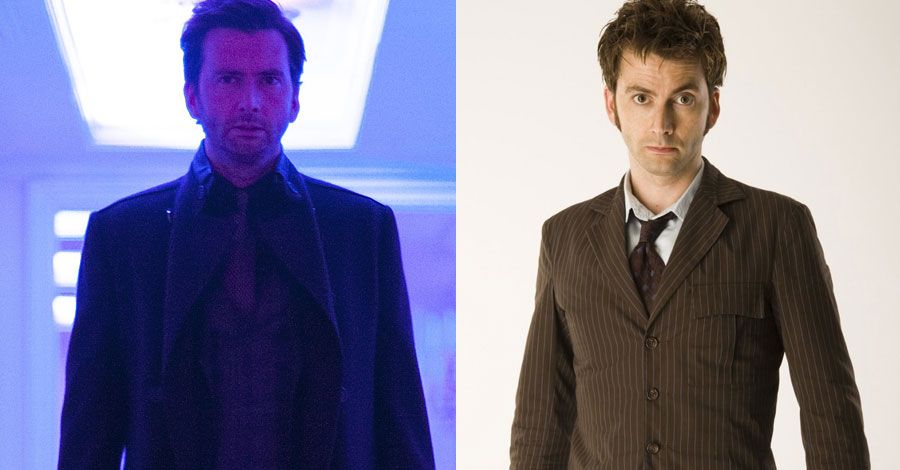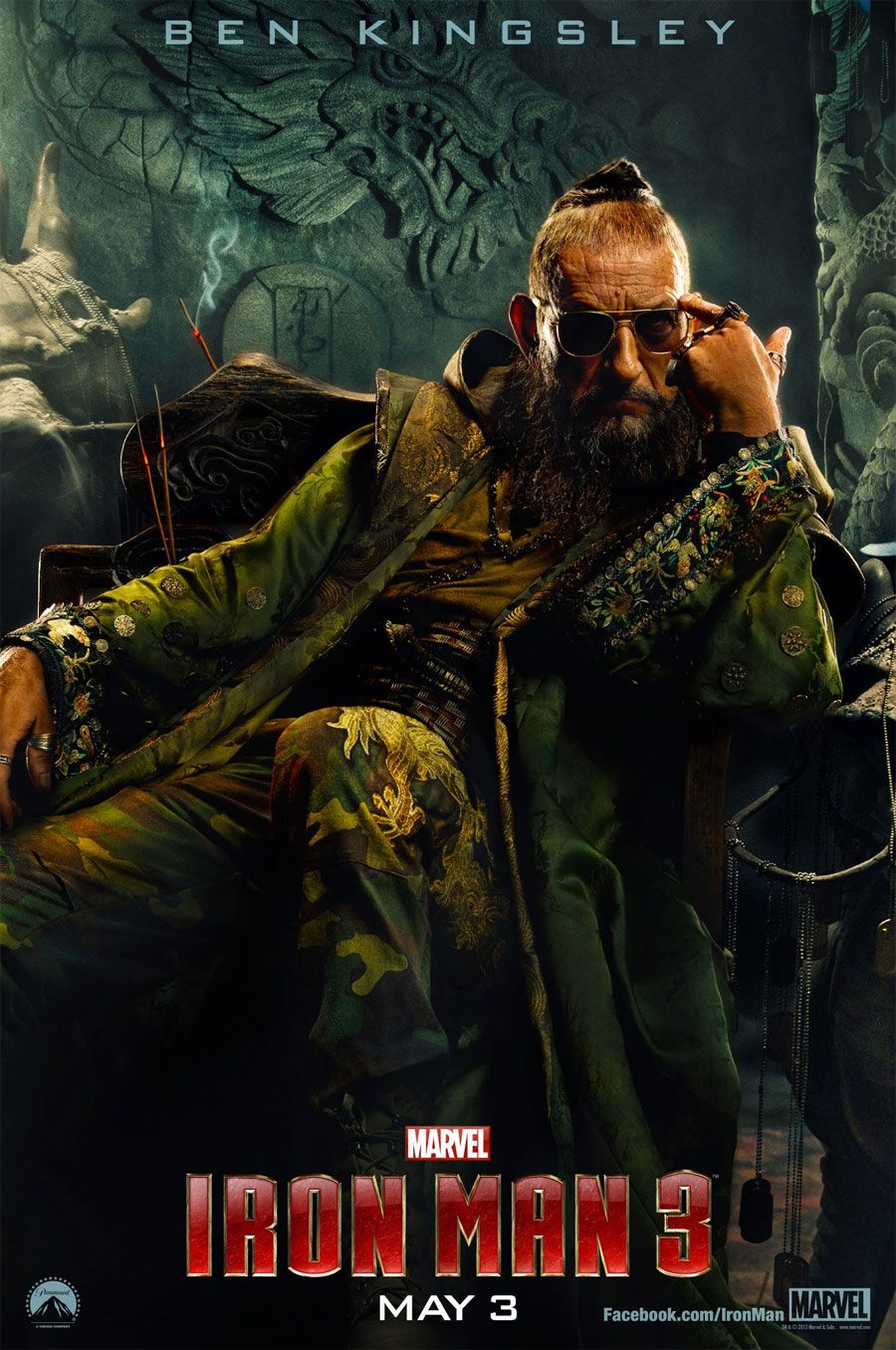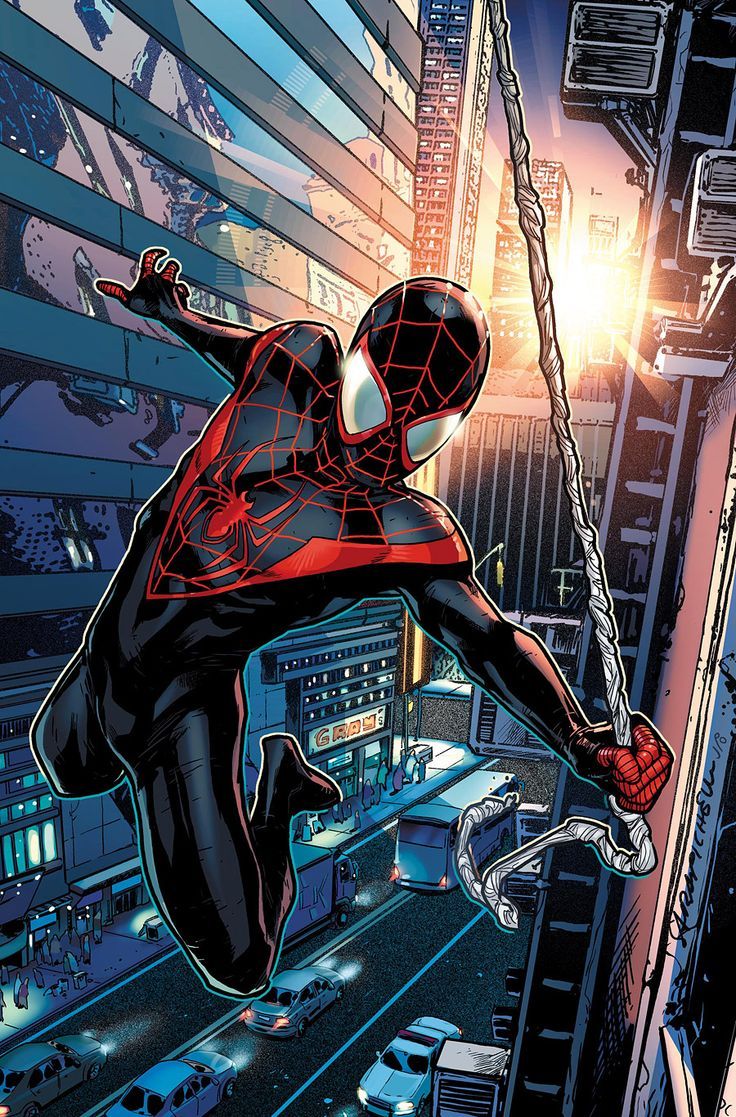While it's not unusual for an actor to take on roles both heroic and villainous throughout their career, sometimes fans can become so used to seeing their favorites as the former that when they switch to the latter, it can be jarring. Or, as in the case of David Tennant's switch from his "Doctor Who" turn to embodying "Jessica Jones'" Kilgrave, it can be legitimately disturbing.
The essence of Kilgrave plays out across the course of the Marvel Television/Netflix series in a manner surprisingly similar to The Doctor in many ways -- an affected charm, a prepossession and the use of subtle and unsubtle manipulation techniques to achieve his goals. But when the overt similarities between the characters melt away, fans of Tennant's Doctor are left with the realization that while the actor they love as a heroic Time Lord is now playing a character with many similarities, he's also perhaps the most vile man to ever walk the Marvel Cinematic Universe, a realization that for some people was downright unsettling.
RELATED: 6 Ways "Jessica Jones" Changed the Marvel Universe
It's exactly this dichotomy that made Tennant's Kilgrave so effective, a performance that marks yet another way Marvel Studios kept its projects fresh even as the world grows increasingly used to the superhero formula. After years of films where there was a shiny thing that everybody wanted, and the villain got, and then the heroes recovered, Marvel began to change up its approach in order to keep things new.
When Ben Kingsley joined the cast of "Iron Man 3" as The Mandarin, it triggered a certain familiarity in the minds of the audience -- which ultimately tripped everyone up once they saw the character come to life. Kingsley is one of those actors who tends to very easily get cast as a scenery-chewing monster, the hammy villain with a British accent and a need for power. Casting Kingsley as a centerpiece villain led everyone to believe that he'd be bringing those traits to yet another role, in no small part because we've seen similar actors who did just that in previous Marvel films. Anthony Hopkins, for example, who was cast in "Thor" largely for his ability to yell theatrically whilst simultaneously looking completely dead behind the eyes. The tendency of Marvel Studios to allow certain side-characters to be predictable variations on a theme the actors have played multiple times before had led us all to a place where Marvel was now able to use that to make their stories less predictable, an approach that played out when Kingsley's Mandarin was revealed to be a stoner actor rather than an actual world-dominating terrorist.
Now, for every Glenn Close who performs basically on-type, there's a Robert Redford revealing that he's actually a Nazi ally. For each Tommy Lee Jones as a barking military grump or Hugo Weaving as a sinister villain, there's someone like Tennant, merrily playing against their reputation to keep the audience off-guard.
Now, we're seeing this happen within the choices of characters themselves: Baron Mordo is set to be more of a difficult ally to Doctor Strange in that upcoming movie than a nemesis, according to reports; whilst "Guardian of the Galaxy's" Yondu has been reimagined as a secondary antagonist to the team rather than a founding member. Despite the pre-release build up, some villains, like Baron Von Strucker, have been anything but the important, decisive figures they've been in the comics. Look at the upcoming debut of Baron Zemo in "Captain America: Civil War" -- is he actually going to be a huge, important deal, or a distraction, or what? It's impossible to say anymore, because Marvel has placed such importance in playing against type.
RELATED: What Comics Can Learn from the Saga of WWE's Bayley & Sasha Banks
It's interesting to see how the same conceit can really catch people off-guard when it comes to comics. There are several writers, for example, who established themselves by telling a certain kind of story, working within a particular genre. Jason Aaron, for example, made his name on books like "Scalped," a hard-edged comic with real grit in its teeth. But fast-forward a few years, and the writer of those noir-stained pages has worked on not only outwardly similar works like "Punisher MAX," but bizarre, often silly titles like "Wolverine & The X-Men." A lot of the success of WATXM as a whole, in fact, could arguably be due to readers being so surprised to find Aaron working with such a light-hearted touch.
This is crucial for companies like Marvel. Fans have been reading the comics for decades, and the fact that superhero comics can never truly complete a story is well-known. Corporate universes only ever to offer "middle" parts of a longterm story which can only come to a conclusion when the companies shut down (hopefully decades into the future, if ever). It's become important to at least make sure that middle is more unpredictable than ever before. Taking a crime writer like Brian Michael Bendis and giving him noir series like "Alias" or "Daredevil" is all well and good (and made for arguably some of his best work in comics), but it was putting him on an outright sci-fi series like "Guardians of the Galaxy," or years ago, the teenaged superhero epic "Ultimate Spider-Man," that really surprised readers.
Currently, Marvel has a lot of creative teams on comics where you'd expect them to be. Amadeus Cho is now the Hulk, and noted monster artist Frank Cho is drawing the book while Greg Pak, Amadeus' co-creator, is writing. You instinctively want to see those two on a book like that. Yet Pak also wrote an "Action Comics" story where Superman actively goes up against American law-enforcement in one of the most fascinating political works of 2015. Real world lawyer Charles Soule makes sense for comics like "She-Hulk" or "Daredevil," just as humorist Chip Zdarsky was an obviously perfect choice to write "Howard the Duck" -- but could anyone have predicted Jason Latour writing "Spider-Gwen?" Or 2000AD-stalwart Al Ewing redefining Blue Marvel and the rest of the Mighty Avengers?
Some of Marvel's most interesting, unpredictable and successful comics have come about as a result of this twisting of audience expectation. When you see somebody predictable on a comic, it can be a relief -- thank goodness Dennis Hopeless is getting to write more comics about teenagers in "All-New X-Men," for example, because he's proved himself to be great at it. However, it can also be tiring. Some writers seem to be telling the same kind of story multiple times across multiple characters and publishers, and readers seem to be tired of seeing it. A little fresh air can make all the difference after months of predictability.
With Marvel Studios freshening things up to throw both comics-fans and superhero movie-fans off the trail -- not a single living person outside of a select few has any real idea what to expect from Tilda Swinton's The Ancient One character in "Doctor Strange" -- it's refreshing to see Marvel Comics adopt a similar tactic. We're all aware of how comics work, and fans are as interested in trying to predict the next few months as they are in reading this month's story; giving us a turn, a twist, a change gives us all something new when we walk into the comic shop. Kieron Gillen went from "Journey Into Mystery" and "Young Avengers" to "Darth Vader," somehow, showing a completely different, equally enjoyable side of his writing.
It's very easy for comics to get stuck into a rut, and for writers and artists to get lumped in as a certain kind of talent. Seeing people come out of nowhere to do something completely different to anything they've done before is a great move for movies, television and comics, and I hope we can see more of it in 2016.



